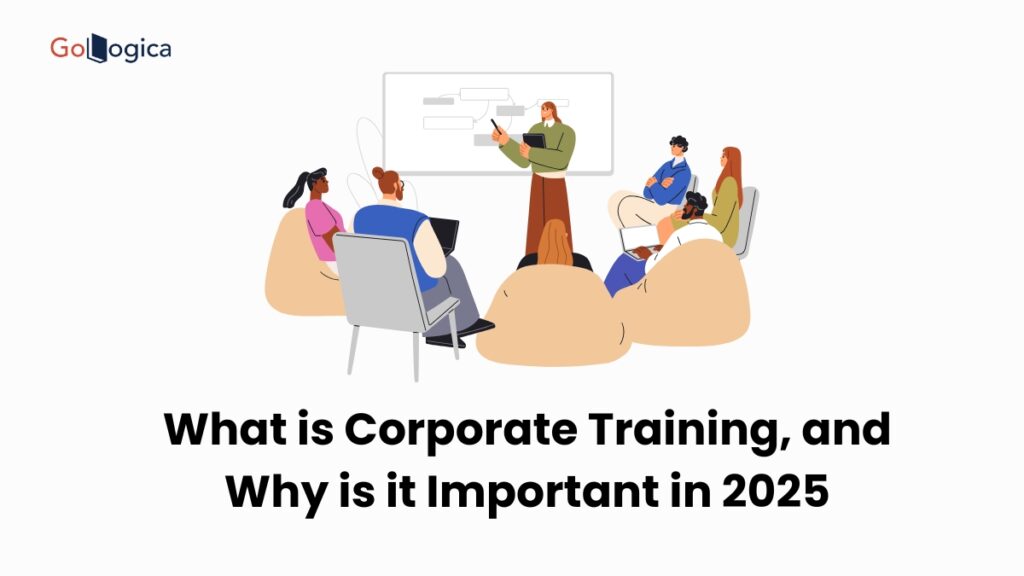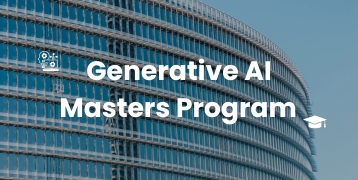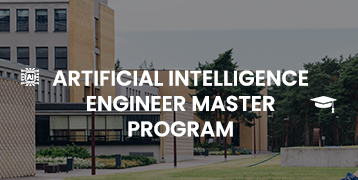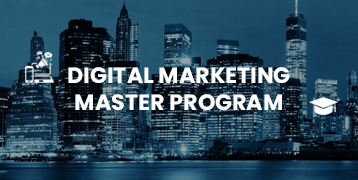
Table of Content:
Introduction
Keeping Employees Up-to-Date
Addressing Skills Gaps
Boosting Employee Confidence and Morale
Enhancing Employee Retention
Fostering Innovation and Adaptability
Strengthening Employer Brand
Improved Performance and Productivity
Increased Employee Motivation and Engagement
Conclusion
Introduction:
The corporate Training organizations aim to improve their employees’ abilities and help them work well, leading to the success of the business. It involves different ways of learning, like going to workshops, signing up for online classes, working while being trained, and getting mentored, all aimed at reaching set company objectives.
The main purpose of corporate training is to teach employees important skills for their jobs, fill any skills gaps, and keep the team informed about modern changes and new technological trends. In addition, it helps bring new hires on board, ensures the business follows the rules, and promotes unity among staff. Continued learning helps companies bring about increased productivity, more inventive ideas, enjoyable jobs for staff, and better chances of keeping their best people, putting them ahead of their rivals.
Due to the fast pace of modern business, being updated through learning has become especially necessary. Usually, Learning & Development or HR professionals handle corporate training, as they create and assess the training programs to support both people’s development and the goals of the company.

Why Corporate Training Important in 2025
In 2025, companies view corporate training as mandatory and not just extra spending. Since innovation in AI and digital tools is increasing rapidly, companies ought to train their workers to keep up. Training allows employees to meet future demands and promote fresh thinking, more productivity, and the ability to adapt.
Also, nowadays, employees place a lot of importance on continuously learning and advancing in their careers. Providing training programs increases how much employees are committed, remember their roles, and like their jobs. Preparing teams for changes, no matter if they come through technology or new demands from the market, is also valuable.
Workforces become strong and well-prepared for the future with corporate training for both leadership and technology skills. Since everything changes, helping employees grow ensures success in the future.
GoLogica AI Training is meant for anyone who wants to learn AI and grow their careers as the digital world keeps changing.
Keeping Employees Up-to-Date:
Because the digital world is moving so fast today, it’s now more crucial than ever to keep staff up-to-date. When technology grows, the equipment, websites, and methods that help a business succeed also grow. In 2025, companies that encourage continuous learning allow their teams to change fast, create new ideas, and remain ahead of their competitors.
Training staff often allows them to learn current changes in the industry, technology, government rules, and what customers want. It makes it possible for people to learn what they need to adapt to new roles due to technology. Employees face a drop in performance if they skip continuous learning, which could be bad for both productivity and the company’s development.
Besides, employees typically become happier and are less likely to quit when allowed to advance and acquire new abilities. Companies that support workers’ career growth keep their employees for a longer period. Because of it, culture focuses on new ideas, teamwork, and readiness to adapt to emerging challenges.
Ultimately, keeping employees up-to-date isn’t just about knowledge—it’s about building a future-ready workforce capable of meeting tomorrow’s challenges head-on. With this insight, businesses will position themselves at the forefront and emerge as leaders during this time and moving ahead.
Addressing Skills Gaps
Due to rapid changes in business, companies deal with difficulties where skills gaps exist between workers’ skills and what the company requires to prosper. It is necessary to address these gaps to keep companies ahead, encourage progress, and make sure operations stay solid.
Firms should often check their staff’s abilities to know where their skills are now and where they could be in the future. It is necessary to look at the job requirements, trends in the sector, and technological innovations. Whenever there are gaps, specialist training such as workshops, online courses, and being assigned a mentor can be provided. Updating and improving the skills of employees increases their capabilities and also motivates them to remain with the company.
When educational institutions and industry groups join forces, it becomes possible to bridge these gaps by making sure the curriculum is useful for people starting their careers. Besides, using AI-based learning apps can create customized and practical training for everyone.
Having strong leadership encourages employees to continue learning new things. Nurturing curiosity and giving employees the space to gain new knowledge helps them adjust to new situations and keep up with changes. It is important to realize that solving skills gaps is something employees and the company must keep working on.
Addressing skill weaknesses in a timely manner allows the team to face current issues and capture upcoming possibilities, helping the organization remain ahead of competition.
Looking to upskill your career in Data Science Training? GoLogica offers expert-led training to keep you ahead in the AI-driven world! include the Applied Data Science with Python Training
Boosting Employee Confidence and Morale
To ensure a thriving workplace and great outcomes, it is important to boost employees’ confidence and morale. Compared to when they do not feel confident, employees who are secure and assured will work hard, think more creatively, and help the team prosper.
It is important to encourage people to understand and accept themselves. When employees notice their talents and achieve something, it strengthens their self-confidence. Enabling learning and training sessions for staff allows managers to help employees gain new skills and face problems with success.
Constructive and prompt feedback works well as an additional tool. Telling someone what they are good at and giving them practical support encourages them to improve and achieve more. If a mentor or experienced person guides someone who is a little shy, it benefits both sides and promotes teamwork.
Everyone should feel valued and respected in the environment, so we should focus on this. If communication is open and people collaborate in teams, trust grows and workers feel comfortable sharing their thoughts. Entrusting employees with responsibility helps build their confidence, because it feels good to be depended on.
Including recognition, development, feedback, mentorship, inclusion, and autonomy in their approach, organizations can develop a positive space where employees are confident and happy.
Enhancing Employee Retention:
Companies that succeed in today’s competitive environment put increasing employee retention at the top of their strategies. When an organization keeps top workers, it reduces the expense of hiring and training new employees and encourages a group of people focused on progress and effective output.
Addressing the problem from several sides is important. If you match benefits and policies to personal needs, employees will realize they are important to the company. Being honest in sharing both company aims and difficulties earns trust and keeps people interested in their work. Boosts in morale and loyalty are a result of staff being both recognized publicly and given incentives.
Putting your employees’ needs first greatly contributes to their wish to stay. When mental health, money, and job growth are included in initiatives, the feeling comes across that the company really cares about its employees personally and professionally. Having flexible schedule options and a good balance between work and personal life is now very important, according to studies that highlight how it boosts the retention of employees.
Giving workers the opportunity to progress, learn, and shift roles internally helps them hope for a future in your company. If there is strong communication and detailed feedback from supervisors, it makes employees happier and more engaged at work.
If management decides to focus on these strategies, it can establish a good work atmosphere, attract skilled people, and maintain them, which ensures that the organization is successful over time and can adapt to new challenges.
Fostering Innovation and Adaptability
Being innovative and flexible is necessary for companies that want to succeed in a business world that keeps changing. Strong communication and teamwork are important because they propel companies to compete and adapt when new things arise.
To promote innovation, companies should set up an environment that rewards creativity and tries new things. Having employees share their suggestions without worrying about failing matters a lot. When people from different departments join together, it often leads to new ideas and major advancements. Praising and rewarding innovative actions tempts teams to come up with new solutions.
Meanwhile, adopting a flexible and open mind makes people more adaptable. Consistent training and opportunities for development give employees the ability to keep up with changing trends and pick up fresh skills. Those in charge should set an example by reacting positively to change and staying strong after facing obstacles.
Employees have the chance to decide and try out different approaches, it gives rise to both new thinking and flexibility. If we focus on growth mindset, we can build a team that is prepared for anything uncertain.
If organizations put an emphasis on innovation and flexibility, their teams can handle the constant changes in the market well. This leads to the company’s growth and provides a great and satisfying work environment for employees.
Looking into learning new skills to work as a Business Analyst? GoLogica points out that business people next register for their Business Analyst Training to improve their skills and earn an internationally recognized certification, gaining access to important roles Business Analytics with Excel Training
in reputable companies and .
Strengthening Employer Brand
Having a great employer brand is key for companies seeking to bring in, engage, and keep excellent employees in the present job market. How a company is seen as a place to work comes from experiences provided by both its current and former employees, as well as from how others see it.
To make their corporate employer brand stronger, organizations need to be truthful and genuine. Expressing what your company stands for guides potential employees in knowing what their experience could be like. Feature real stories and testimonials from your employees on your social media and career pages to increase the brand’s trust.
The experience employees have is essential for a good employer brand. Prioritizing employees’ well-being, giving career growth opportunities, and making the environment friendly and encouraging keep employees happy and help them promote your brand. Taking note of and celebrating achievements helps improve employees’ views of the company.
Getting involved in the larger community by initiating and joining social responsibility activities shows that companies care about their presence in the workplace.
Practicing honesty and creating a helpful work environment distinguish organizations to a point where top professionals are attracted to them, stay with them, and help the business succeed in the long run.
Improved Performance and Productivity
To be successful and keep up with rivals, organizations prioritize helping corporate employees perform well and be productive. If employees work at maximum efficiency, companies gain improved productivity, better results, and satisfied clients.
A vital part is to choose goals that are specific and can be measured in line with the company’s objectives. It gives employees a sense of what is expected from them and what counts. Regular feedback and performance reviews allow a person to see how they are progressing and find out what they need to improve on.
Offering training, upskilling, and mentoring gives employees the ability to develop and respond to the demands of their jobs. By giving teams access to the correct tools and resources, productivity issues are often avoided.
If workers are encouraged to collaborate and share information, with their achievements recognized, they feel more inspired and take part actively. Achievements, big or small, should be recognized and appreciated by their managers, as it motivates employees to continue to do well.
Work-life balance and initiatives that support well-being matter just the same since they protect us from burnout and continuous success. Enablement of flexible schedules and ensuring understanding management assist with employees’ satisfaction and how much they accomplish at work.
By following these strategies, corporate organizations allow their employees to perform better, which helps the business succeed.
Increased Employee Motivation and Engagement
For organizations to improve productivity, introduce new ideas, and hold onto their staff, motivating and engaging employees is very important. If people are motivated in their jobs, their involvement and contributions boost business performance.
Having a good work environment and showing respect to everyone is a crucial part of any business. Rewarding people for their efforts, both major and minor, encourages the right behavior and can increase employees’ enthusiasm. Making sure employees have access to training, mentors, and marked career paths serves to boost their confidence and make them more committed at work.
Being open and honest is an important part of engaging corporate employees. Getting their feedback, addressing employee concerns, and including staff in choices make people feel accepted and valued at work. Supporting a good balance between work and personal life, as well as flexible work plans, makes people happier with their jobs.
Leadership that is strong and focused matters a lot. Anyone who inspires, helps others, and follows the company’s principles strengthens the culture of collaboration and trust. Appreciating group achievements and fostering a united team spirit adds to people’s enthusiasm.
When these strategies are placed first, organizations inspire their staff to work hard and create new ideas, which keeps them ahead in a tough market for the future.
Conclusion
Companies use seminars, online courses, hands-on learning, and mentoring in corporate training to help employees become better in their jobs. Because business conditions are always changing, organizations need to make training a key strategy instead of a simple benefit for staying ahead in the future.
Since industries are regularly transformed and shaped by new technology and changing markets, learning new skills is very important. Corporate Training in companies help people gain the skills they need for modern-day tools and technologies in their fields. This not only increases the speed of personal and team tasks but also improves the results for the company. When staff members are well trained, their confidence and involvement grow, so they are generally happier at work and choose to stay for longer.
Also, helping employees improve their skills encourages everyone in the company to keep learning, try new ideas, and respond to unexpected changes. Training programs guide people in an organization to understand the rules and regulations of the industry, lower risks, and maintain excellent quality and service.
This article demonstrates to GoLogica why it is smart to include proactive learning as part of daily routines. In the year 2025, improving company performance through training results in having strong, flexible, and highly successful teams. When businesses concentrate on corporate employees’ development, they gain a lasting competitive advantage, draw high-achieving workers, and grow with time.
Related Articles:
What Is Employee Tuition Reimbursement
How to Identify Soft Skills and Assess Employee Trainability
How to Employee Training & Development in 2025
Top 7 Best Practices for Training a Global Workforce
Advance Your Career with the IT Skills that Tech Leaders Need










